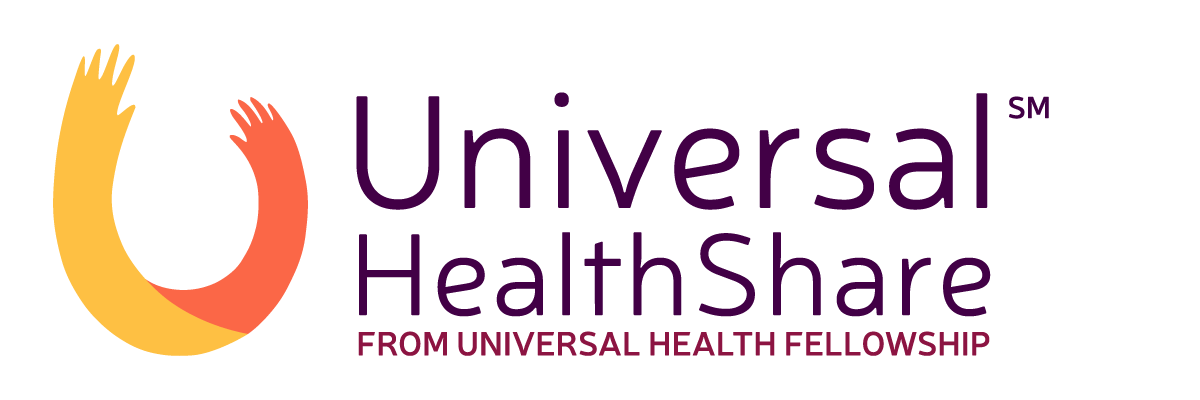FOR BUSINESSES
FOR PHYSICIANS/PROVIDERS
FOR MARKETING REPRESENTATIVES
FOR MARKETING REPS
Sharing Vs Insurance

How to Know Whether Sharing is Right for You
Sharing programs may not be for everyone, but for many people who don’t have access to traditional employer-sponsored health plans — including workers in the growing gig economy — they provide a way to help share health-related costs. And the goodwill generated by a community of concerned, sharing people is a good thing, too.
Health Sharing Programs
are Not Insurance
Health care cost sharing is fundamentally different from health insurance. Here are some key things that you must know to understand the differences.
- Sharing programs are not contractually obligated to share medical expenses. Whether other members choose to assist you with your medical bills will always be voluntary, because members are not obligated to share and will not be compelled by law to contribute toward your medical bills.
- Sharing programs are built on shared ethical, spiritual, and religious beliefs, and the traditions of community aid, neighborly assistance, and the sharing of burdens. They provide a way to share medical expenses among members, but they do not accept any transfer of risk from members. Sharing ministries are not insurance companies, and their sharing guidelines and plans of operation are not insurance policies.
- Sharing programs do not share expenses resulting from certain behaviors and lifestyle choices that are commonly recognized to be detrimental to personal health.
- Regardless of whether a sharing program member receives any sharing for medical expenses, they are always personally responsible for the payment of their own medical bills.


Health Sharing is Voluntary
Traditional health insurance plans are based on contracts where an insurer becomes legally responsible for and accepts someone’s risk of loss (such as their medical bills) in exchange for their payment of premiums.
Sharing programs like Universal HealthShare are totally different. The choice to become a sharing program member is completely voluntary. And monthly contributions by sharing community members are voluntary, non-refundable gifts made to help other sharing program members meet their eligible health care expenses, and to help cover the operational and administrative costs of the not-for-profit Universal Health Fellowship organization.
Sharing contributions do not create a contract or other legally enforceable right to receive funds to pay your own health care expenses. All members take it as a matter of faith, not law, that others will voluntarily make contributions to help with medical costs. Because sharing programs don’t contractually guarantee payments, medical providers consider sharing members to be “self-pay” patients: that is, people who are considered to be individually responsible for their own medical bills.
Good news: some providers will voluntarily agree to bill their services to your ministry program for sharing. And Universal HealthShare may be able to help identify facilities and providers who have historically been friendly and cooperative towards sharing.
Why we Offer Sharing
Sharing programs are about community cost sharing and personal choice. Because they’re not subject to the same regulations as insurance, they have more flexibility in what is (or is not) shared. As a result, sharing can be easier on your monthly budget than health insurance. This means that more people can afford to provide for their health and wellness care, and that is a wonderful thing.

Legal Notices
While sharing programs are unregulated, many state governments have published legal notices to inform their constituents about sharing organizations. Additionally, some states have adopted their own Individual Mandate laws, some of which impose a state tax penalty. It is important for each member to be familiar with their state notices and tax laws regarding sharing programs, including whether they qualify for an exemption from their state’s Individual Mandate, if any.
The state Legal Notices serve to further clarify that sharing programs are not health insurance plans. To read notices from all states that have issued them, click here
An additional notice discusses the federal and state Individual Mandates for health care programs. To read this notice, click here.
FOR INDIVIDUALS
FOR BUSINESSES
FOR PHYSICIANS/PROVIDERS
FOR MARKETING REPRESENTATIVES
FOR MARKETING REPS
Copyright © 2019-2024 Universal Health Fellowship. All rights reserved.

